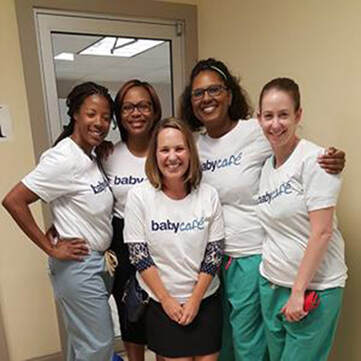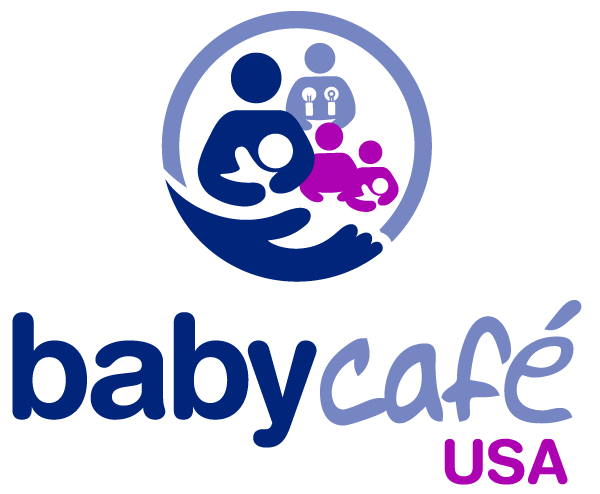For PArents/Por Padres
WHAT IS A BABY CAFÉ?
|
Baby Cafés are free, drop-in, informal breastfeeding support groups offering ongoing professional lactation care and intervention. Most are open for 2 hours at least once a week. Some communities have more than one, meeting different days of the week. Baby Café USA is a non-profit 501(c)3 organization supporting the development of licensed U.S. Baby Cafés.
|



